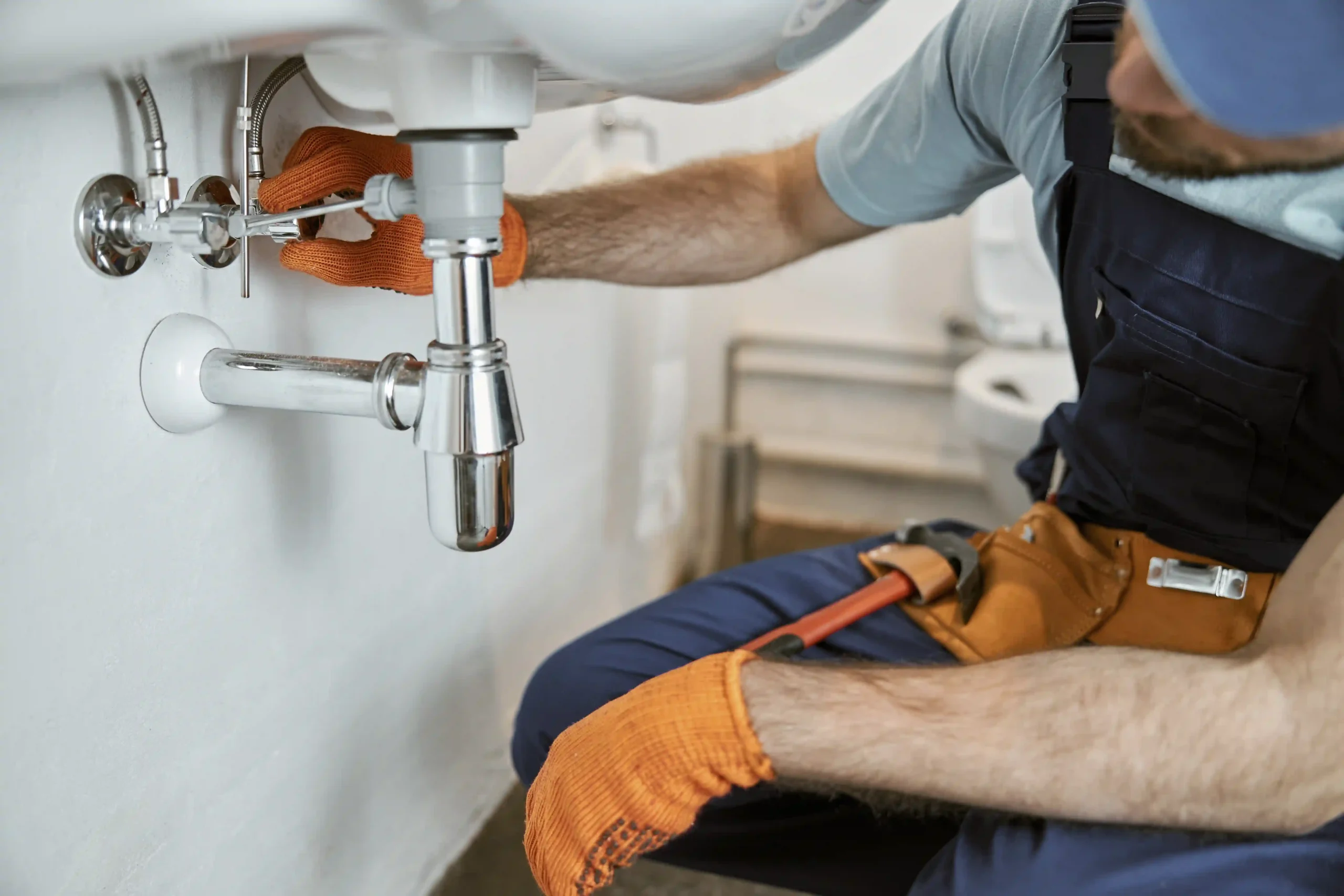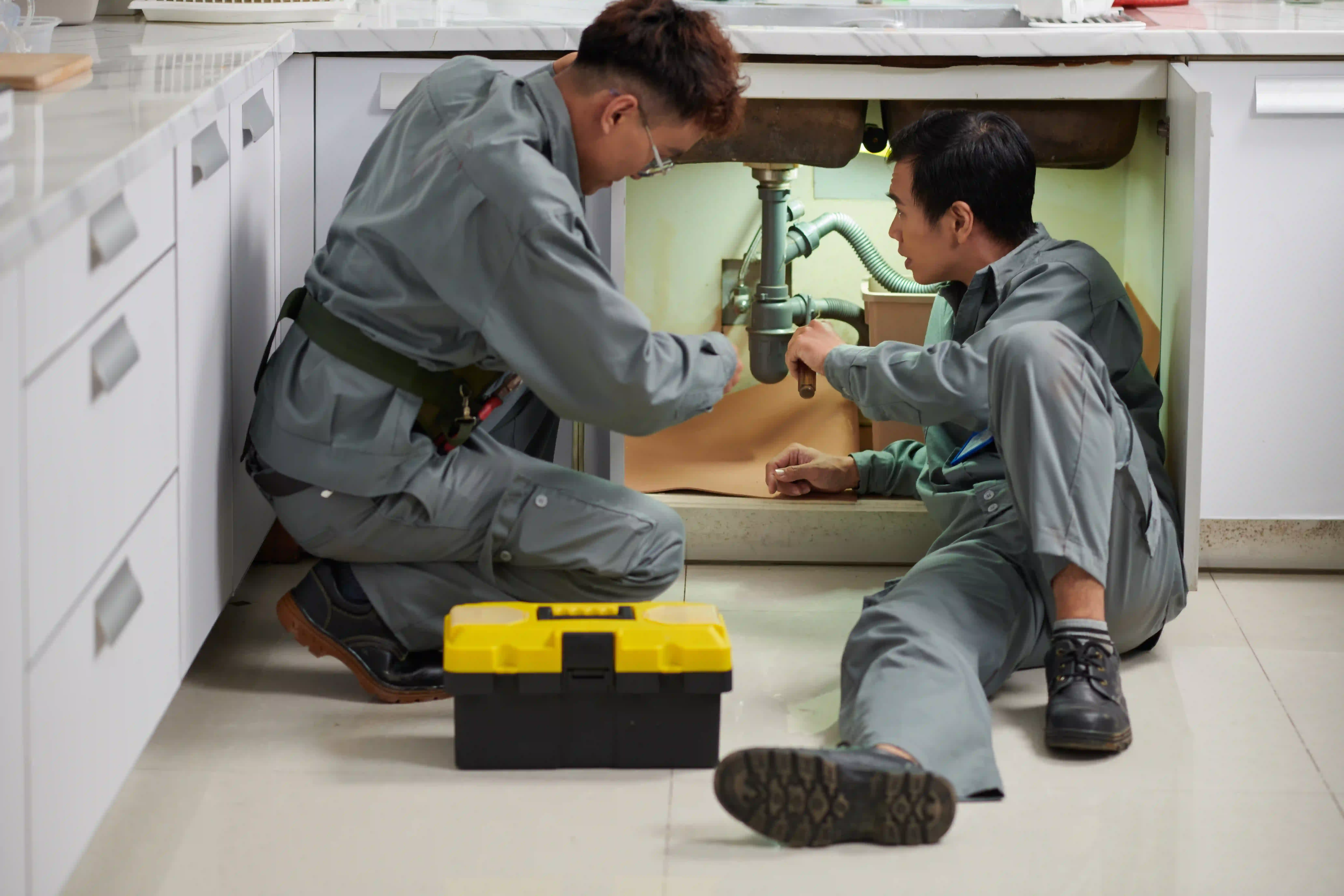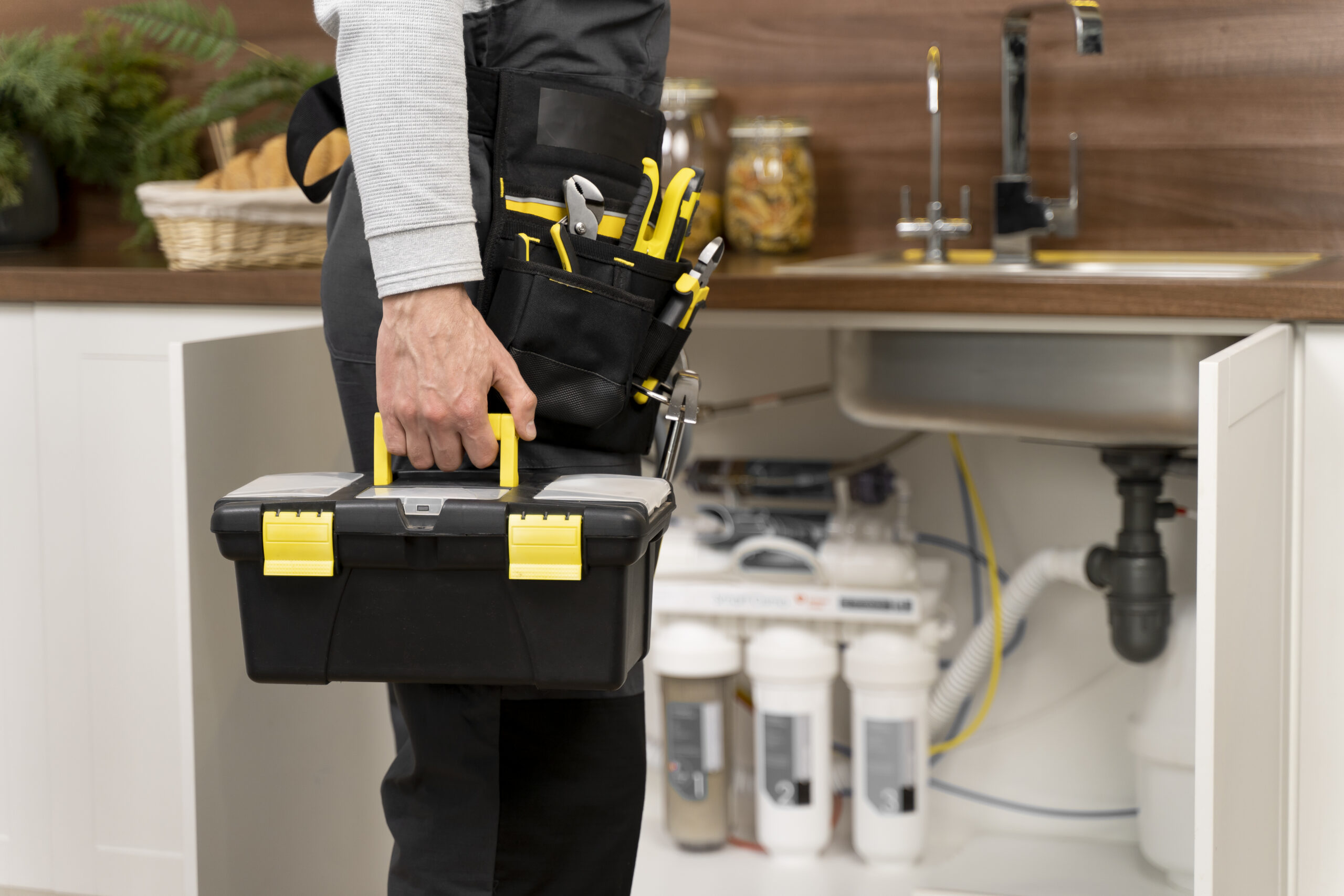Welcome to your friendly local plumbing crash course! Ever woken up to a mysterious drip or wrestled with a sluggish sink? You’re not alone. Living in Orange, NSW means dealing with everything from rusty old pipes to bushy trees that love to invade drains. In this guide, I’ll share casual, no-fuss advice on tackling those pesky leaks and blockages – all in everyday language. Think of this as a chat over a cuppa with a know-it-all mate who happens to be handy with a wrench. By the end, you’ll feel more confident spotting and fixing problems or deciding when it’s time to call in your Plumber Orange (that’s your local expert!).
Why Local Know-How Matters
Orange is not Sydney, so your plumbing challenges can be unique. Our chilly winters (hello, frosty nights!) can make pipes crack, while big storms can send tree roots scurrying into drains. Also, many Orange homes are older, meaning your plumbing may be clad in ancient metal or terracotta pipes. Over time, these can corrode or collapse, causing leaks and blockages. For example, fallen leaves and garden debris often clog our gutters and outdoor drains after a storm. By the time puddles pool in the yard, it’s a serious issue!
Your best ally? Local knowledge and experts. In fact, Orange City Council notes that if a leak is on your side of the water meter, it’s the homeowner’s job (and plumber’s) to fix it. In other words, if you hear a drip, don’t wait: turn off the valve and investigate. Many issues in Orange are similar year-to-year, so a Plumber Orange who knows our weather, local building quirks, and Council rules can save you time (and money) in the long run.

Leaks 101: Spotting and Stopping Them
Leaky taps and pipes can start small – a trickle here, a damp patch there – but quickly become a big headache. You might notice a hissing sound in the walls, spots of mold on a ceiling, or a mysteriously high water bill. Before panicking, try a quick check: turn off all taps and see if your water meter still moves. If it does, there’s likely a hidden leak somewhere in your house.
DIY Checks: First, turn off the main tap to stop water flow and limit damage. Next, look under sinks, around the toilet base, and at your hot-water system. Tightening a loose shower head or replacing a washer in a dripping tap can sometimes cure a small leak on the spot. Teflon tape on threaded connections or a new rubber seal might do the trick. It feels good to fix it yourself – as long as it’s a minor leak.
But let’s be real: some leaks hide out of sight. If water is sneaking from behind walls or above the ceiling, it’s time to call in a pro. According to Orange Council’s official policy, if the leak is on the homeowner’s side of the meter, you should have a plumber fix it. And guess what? NSW law insists that all plumbing work be done by a licensed plumber. In plain English: don’t dabble with major leaks or gas lines yourself. It’s safer (and legal) to hire a qualified Plumber Orange, ensuring the job is done right.
Preventing Future Leaks
The best leak is the one you avoid. A few handy tips:
- Pressure on tap? Check if high water pressure is hammering your pipes. A plumber can install a regulator if needed.
- Pipe insulation: In winter, insulate outdoor pipes or those in the garage to prevent freezing (when water expands in ice, it can crack pipes).
- Regular checks: Make it a habit every few months to listen near your pipes. A small drip can save big trouble.
- Smart devices: Consider a water leak detector (they exist for home networks now!) or a WaterFix program (offered by Sydney Water) that checks for hidden leaks. Technology is creeping into plumbing – nowadays gadgets can alert you to unseen drips.
With these steps, you nip many headaches in the bud. But if your DIY fix feels like throwing a bandage on a broken leg, it’s time to reach for the phone and call your Plumber Orange.
Clearing Blocked Drains (DIY Tricks and Tips)
Ah, the dreaded blocked drain – the ultimate mood-killer during laundry day or dinner prep. The good news? You can try a few safe DIY tricks before calling in reinforcements. And if those fail, you’ll know it’s a plumber’s problem, not yours.
Common Culprits: In Orange (like anywhere!), kitchen and bathroom clogs usually come from hair, grease, or foreign objects. For example, pouring cooking oil down your sink might seem harmless, but it cools and solidifies, forming a fatberg in your pipes. That’s a surefire way to call the Plumber Orange in a panic. Similarly, hair and soap scum often gunk up shower drains, while wipes and sanitary items can jam toilets. (Fun fact: wet wipes cause about 75% of sewer blockages!.)
DIY Drain Clearing Steps: Before phoning a plumber, try these earth-friendly hacks:
- Boiling Water: Carefully pour a kettle of boiling water down a kitchen sink drain. This is great for grease blockages (the heat melts the fat). Only use boiling water on metal pipes; on PVC, hot water (not boiling) to avoid loosening joints.
- Plunger Magic: Grab a plunger and give it some pump-action on sinks or toilets. A firm, steady plunge (with a little water cover) can jar loose soft clogs.
- Baking Soda & Vinegar: For sinks, try the classic combo: ½ cup baking soda, then 1 cup vinegar + 1 cup hot water. Cover the drain and let it fizz for 10 minutes, then rinse with hot water. It’s a fizzy way to clear mild clogs without toxic chemicals.
- Snake It Out: If you’ve got one, slide a drain snake or straightened wire hanger (with a hook) into the drain to fish out hairballs or debris. It’s low-tech, but effective if you can reach the clog.
- Check the U-Bend: Under sinks, unscrew the U-shaped trap (catch it with a bucket). Clear any gunk in there by hand, then reassemble tightly. Often the clog lives right there.
When to Call Plumber Orange: Try the above a couple of times. If the drain is still stubbornly slow, making gurgling noises, or the clog is recurring, it’s time to admit defeat. Maybe the blockage is deeper (think tree roots or collapsed pipe). For tough cases, a licensed plumber has hydro-jetting tools and camera scopes to blast and inspect your pipes from top to bottom. After all, a professional can find exactly where the problem lies (sometimes 5 meters underground!), saving you guesswork.
Let’s back that up: Sydney Water highlights that fats, oils, and grease should never go down your sink because they harden into fatbergs. If you’ve already got a nasty fatberg on your hands, only high-pressure equipment from a pro will clear it safely. So yes, use your DIY tricks first – they work on many light clogs – but don’t wage war on a drain for hours. If multiple plunges and vinegar soaks fail, call in the experts. Your Plumber Orange will thank you for not damaging the pipes with chemicals, and your house for having a working drain again.
DIY vs Professional Solutions
| Scenario | DIY Approach | When to Call a Pro |
|---|---|---|
| Minor Tap Leak | Tighten fittings, replace washers or O-rings | If leak persists or is from hidden pipe |
| Slow/Clogged Drain | Boiling water, plunger, baking soda + vinegar | If multiple attempts fail or root intrusion suspected |
| Burst Pipe or Major Leak | – | Immediately! A licensed plumber can fix properly |
The table above is your quick cheat-sheet. If you’re wobbling on the “DIY or phone-a-friend (plumber)?” line, let the problem’s persistence be your guide. Minor drip? DIY might fix it. Gushing pipe? Pro only.
Choosing a Plumber in Orange
At some point, you’ll realize “Yeah, I need a plumber.” What then? Not all plumbers are created equal, and you’ll want the right one for Orange specifically.
First off, always use a licensed plumber. In NSW, it’s the law – anyone doing plumbing work must be licensed. Getting an unlicensed person in often means no insurance, no quality guarantees, and potential fines. So, hire a pro who’s insured and licensed. A quick check: ask them for their contractor licence number (it often starts with ‘CPC’). If they’re reluctant, hang up and call someone else. You can verify plumber licences directly via the Australian Building Codes Board’s plumbing regulations page to ensure your plumber is legally authorised to work.
Second, look local. A Plumber Orange who’s based nearby will know our region’s quirks. They can get to you faster in emergencies (like a burst pipe at 2 a.m. – true story!), and they’re likely familiar with Orange City Council’s requirements. You might even ask friends in town: “Who’s your plumber?” Word of mouth is gold. Also, check online reviews or their website for testimonials. For official details on water supply responsibilities and policies in Orange, you can refer to the Orange City Council Water Supply Policy (ST129)
Third, talk costs upfront. Good plumbing isn’t dirt cheap, but it shouldn’t break the bank either. Expect a call-out fee plus an hourly rate. (In 2025, a basic house callout in regional NSW might start around $100-$150 plus labor, but check with local plumbers for exact rates.) Always ask for a quote before work begins – many Plumber Orange outfits offer a ballpark price. Beware of quotes that sound too low; they might be hiding extra charges. It’s better to pay fair for quality than regret a shoddy job.
Finally, 24/7 availability is a plus. Plumbing emergencies don’t stick to office hours. If they offer after-hours or weekend service, that’s a winner – though expect a bit more for the overnight call. Ask if they provide a guarantee or warranty on the work, too. A confident plumber will warranty their repairs.

Choosing the right person can make the difference between a one-time fix and a recurring nightmare. And remember: when in doubt, call the Plumber Orange. NSW Government guidelines bluntly remind homeowners: “you need a licence or certificate to do any plumbing work”. By hiring a proper plumber, you ensure the job meets all standards, keeping you safe (no flooding disasters!) and legal.
Smart Tips and Trends
Before we wrap up, let’s peek at a couple of modern plumbing trends that savvy young pros in Orange might appreciate:
- Smart leak detectors: There are sensors (some plug into your Wi-Fi!) that monitor water usage and detect drips or bursts. They can send alerts to your phone the moment a tiny leak starts, so you shut off the water early. Think of it like a smoke alarm, but for pipes. Some plumbers even install whole-home monitoring systems.
- Water-saving tech: Orange, like much of Australia, cares about conservation. Installing flow restrictors, modern dual-flush toilets, or efficient showerheads can reduce water use. Your plumber can also check for invisible leaks (even under floors) using acoustic leak detection. Sometimes the smartest move is marrying old-school plumbing with new-school efficiency.
- Rainwater tanks and stormwater: Did you know many Aussies use rainwater for gardens? If you have a tank, a plumber can set up pumps and filters. Also, ensure your stormwater and sewer lines aren’t cross-connected – plumbers do that! It’s a legal requirement (and why plumbers often put fancy backflow devices on bigger properties).
These aren’t strict must-do’s for everyone, but being plumbing-aware pays off. For example, repairing leaks quickly not only saves your ceiling but also slashes your water bill. And in Orange’s variable climate, a well-designed system can handle droughts and deluges alike.
Be Your Home’s Plumbing Hero (or Get Help!)
Plumbing problems are a pain, but they’re far from unbeatable. In this Plumber Orange Guide, we’ve covered spotting leaks, unclogging drains, and finding the right local plumber when DIY runs out of steam. Key takeaways: act fast on even small drips, avoid flushing or pouring the wrong stuff down your pipes, and trust licensed experts for the heavy lifting. I hope this chatty guide has armed you with real tricks (plus the confidence to pick up the phone to your plumber when needed).
Plumbing is a team effort: a bit of your vigilance and your Plumber Orange’s know-how. So save these tips, compare a couple of local quotes, and maybe join Orange community forums – ask questions or share a funny clog story. And if a plumbing mystery still baffles you, remember, the council’s policy is on your side: if it’s past the meter, it’s your plumber’s problem.
Now, go forth and flush responsibly. (Yes, you are a real grown-up now who can talk plumbing with confidence.) If this guide helped, share it with a neighbor or bookmark it for future use – nothing like being ready for the next unexpected drip.
Frequently Asked Questions (FAQs)
How can I tell if I have a hidden water leak?
Watch your water meter when no taps are running. If it moves, you’ve probably got a leak. Look for damp patches on walls or ceilings, and listen for dripping sounds. If in doubt, shut off the main and call a Plumber Orange to inspect.
What’s the safest DIY way to clear a blocked drain?
First, try pouring a kettle of hot (not boiling) water down it. Next, use a plunger or a baking soda-vinegar mix. These methods use no harsh chemicals. If they don’t work after a couple of attempts, call a plumber for a proper unblock.
How do I choose a reliable plumber in Orange?
Look for a licensed and insured local plumber. Ask friends or check online reviews. Ensure they offer clear quotes and guarantees. A good Plumber Orange will also explain the fix in plain English.
Is emergency plumbing available in Orange?
Yes, many plumbers in Orange offer 24/7 emergency call-outs. Expect a slightly higher fee for nights/weekends, but it’s worth it to stop leaks fast. Always keep the number of a trusted emergency plumber handy.
How much should I budget for a plumber in Orange?
Prices vary by task. A basic call-out fee might start around $100-$150, then an hourly rate (often $80-$120). Small fixes (like a tap washer) can be ~$50–$150 total, while bigger jobs (pipe relining, hot water service) cost more. Always ask for a quote.

